Specialized Road Tires 2014
You might not think of Specialized as a tire company, but they most certainly are. In fact, their first products were tires, not bikes. We wrote about Specialized in our Fast Tires 2013 article series, and reported some bold claims being made by the California-based company.
We wrote,
“Specialized came out swinging this year, making some big claims. Put simply, they say they have the fastest rolling clincher, tubular, and tubeless tires on the market. While it may seem odd to expect fast tires from a bike company, we don’t have to look too far in the past to see that they have indeed made some fast tires. The now-discontinued Mondo Open Tubular was barely in second place on Al Morrison’s data sheet – by a measly 0.0003 Crr. Specialized has also been hiring some very smart German tire guys who have decades of experience in the tire industry – Wolf VormWalde and Wolfgang Arenz.”
That ‘fastest tire’ is their newest iteration of the S-Works Turbo 24mm. In today’s article, we’ll review this model along with their Turbo Pro and endurance-minded Roubaix Pro.
S-Works Turbo 24mm
This is the tire that Specialized gushed about:
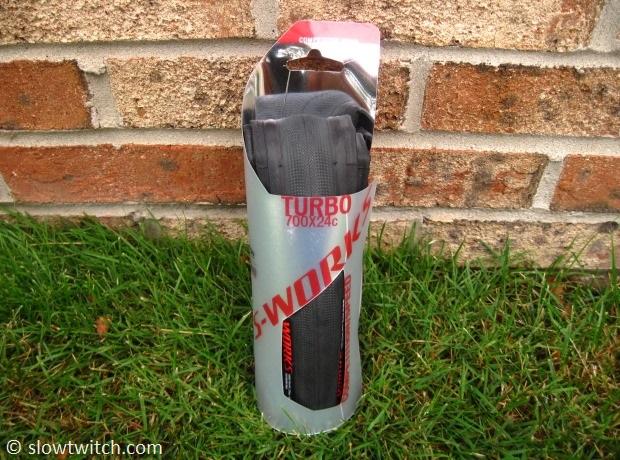
The tire is available in 700×24 and 700×26 sizes, and will run you $65. It has a claimed weight of 205 grams (700×24) and has a 220tpi casing.
The big news for this tire is a new proprietary compound that Specialized calls ‘Gripton’. See what they did there? It has a Ton of Grip… Gripton! I award ten points each for creativity and being pleasantly corny.
This chart shows the claimed rolling resistance in watts-per-tire for the new Turbo (Model Year 2014) compared to the old model (Model Year 2011) and other key competitors:
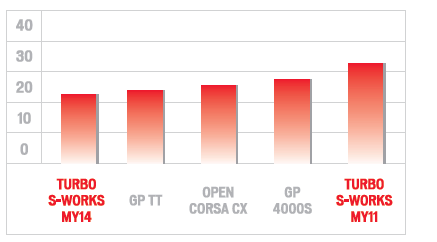
Specialized tells us that the net result is a 70 second improvement over the old tire in a 40k time trial, and a 35 second improvement over the Continental GP4000 S.
I received two of these new tires to test. The first thing I noticed out-of-the-box was the unique file tread pattern:
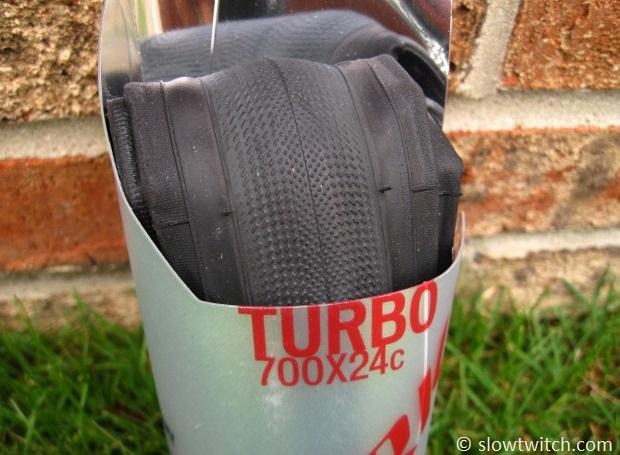
The tread wraps quite far down the sides of the tire, which is said to offer superior grip and handling in all conditions. We were even told that Specialized did blind tests with the Omega Pharma-Quick Step pro road team, and this tire took the top rating in cornering grip.
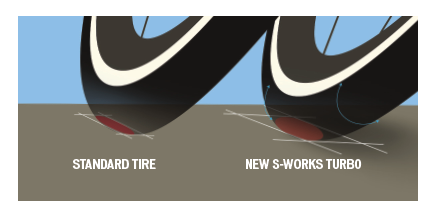
All of the on-paper specs looked great. Given that I had no real idea if any of it was true, I sent an inquiry to Slowtwitch contributor, engineer, and super tire geek, Tom Anhalt. Tom does some very controlled rolling resistance testing, which can be found on his blog – bikeblather.blogspot.com. Tom offered to run the tires through his gauntlet, so I shipped them off to him.
After the testing was done, Tom came back with some surprising results. The new S-Works Turbo tires were…
…slow? Let's look at the results:
S-Works Turbo, Crr=.0052, Pwr for Pair @40kph=48W
Conti 20C GP4000, Crr=.0040, Pwr for Pair @40kph=37W (Tom’s benchmark tire to validate the test)
To translate the results for you, the part in bold is the actual Crr, or Coefficient of Rolling Resistance. The final number is the power required to spin a pair of the tires down the road (e.g. the actual power requirement if we isolated it from the rest of the bike, wind, etc).
Something seemed odd. How were our numbers that far off of their claims? The S-Works Turbo looked more like an all-weather training tire than a racing tire. I inquired with VormWalde to see if we had been sent a bad tire, or if something was wrong.
According to the serial numbers on our tires, we had mistakenly received the ‘old’ style tire that had yet to receive the newest compound and anti-puncture strip.
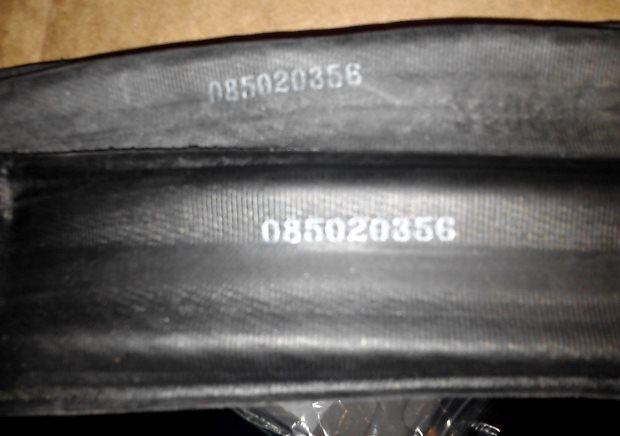
Tom commented,
“The casing and compound feel [okay to me]… it's just seems like whatever they're using as a puncture belt is REALLY stiff. It actually ‘snaps’ as you fold it back and forth. It sort of reminds me of how the Kenda Kaliente feels, which is interesting because it rolls about the same.”
After realizing the mishap, VormWalde sent a pair of the new tires over to Tom to see if we couldn’t find some better numbers.
Anhalt re-ran the tests, and here are the updated Crr numbers:
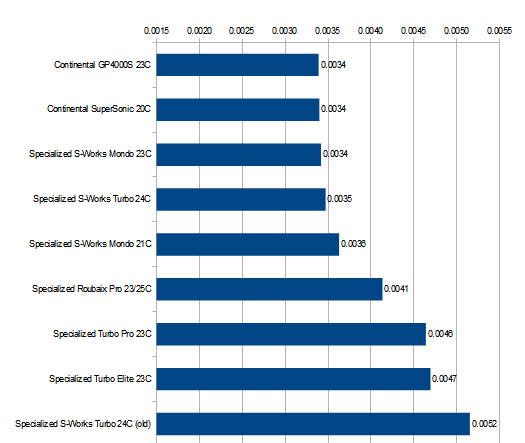
Tom commented,
“I've attached a shot of the spreadsheet showing just these tires, plus I included both the Conti GP4000S and SuperSonic as a comparison. Additionally, I left the results for the [discontinued] S-Works Mondo Open Tubular (23 and 21C) on the chart along with the value for the S-Works Turbo version I originally tested with the old compound and old breaker.
According to my results, the old S-Works Mondo Open was actually slightly faster… although, to be fair, I do consider anything within +/-.0001 on the Crr chart to be basically tied.”
Here is the same chart in power-per-pair:

The thing that both Tom and I found very interesting was that the new tires measured 25.5mm on his standard test rim (which, I believe, measures 15mm internal width). In the past year I’ve been told by Specialized, Schwalbe, and Continental that larger tires roll faster, so I have to think that the extra width is contributing to the low rolling resistance. The older Mondo 23mm tire measured 24mm actual, so I postulate that – for a given size – it was still a hair lower in rolling resistance than the new tire. We don’t really know how the two tires compare in puncture resistance, and that very well could be the difference (e.g. the newer tire may have a tougher puncture belt). Our tests results were slightly different than the Specialized tests, but protocols and equipment differ, and I'm not out to declare one of us right or wrong.
One thing is for sure – the new tire construction is a big improvement over the first version we received. The price is competitive at $5 less than a Conti GP4000 S, or $15 less than a Michelin Pro 4 Comp Limited. Specialized has a real player in the high-end clincher game.
Turbo Pro
The next tire we looked at was the Turbo Pro – specifically the 700x25mm size:
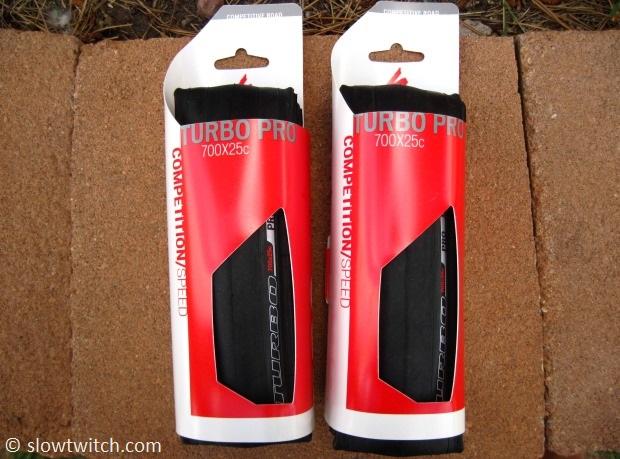
This tire is available in 700×23 and 700×25 sizes, and costs $55. The claimed weight is 220g (700×25) and it has a 127tpi casing.
The Turbo Pro does not have the Gripton compound, but rather an updated dual compound – 70a in the center and softer 60a on the shoulders. My tires measured 26.0mm on a pair of Reynolds AERO 58 and 72 test wheels.
I also used the high-end Pre-Talc’d butyl tube:
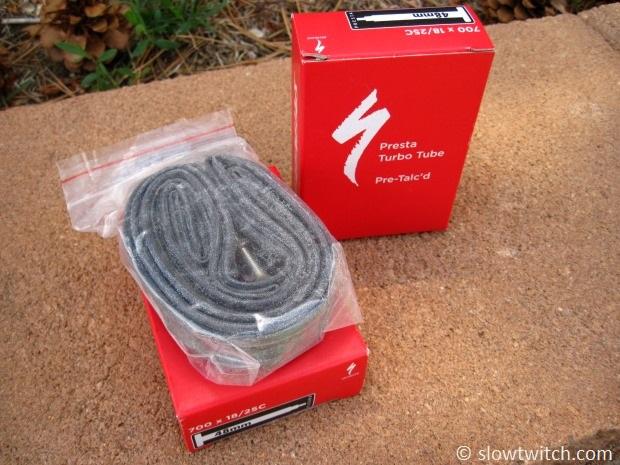
Overall, the construction of the tire looked good. The fit on my Reynolds wheels was very loose (e.g. no tools required for installation), but I attribute most of that to the rims; other tires seemed loose as well. Ride quality was as-expected for a 25mm tire at 90psi – which is to say, smoother over bumps than a 23mm tire at 100psi.
Looking at Tom’s Crr chart, we can see that the Turbo Pro definitely has higher rolling resistance than the S-Works Turbo, but it is undoubtedly more durable – the casing and puncture breaker feel much more substantial in your hand. Its Crr value compares to pricier competitors such as the Zipp Tangente and Michelin Pro 4 Service Course, according to Anhalt’s previous tests. I personally see the tire as a fast training option, or a race tire on a course with rough or rugged pavement.
Roubaix Pro
Interestingly enough, the Roubaix Pro was my favorite tire of everything that Specialized sent to us. It has a unique story and ‘pitch’ behind it – there is a 23/25mm version and a 25/28mm version. Specialized says that the first number denotes the tread width and the second denotes casing width. This formula is said to offer the best combination of weight, rolling resistance, and cornering grip. Even if you don’t believe that, you should understand that it’s the second number that matters most in determining which will fit into your frame (e.g. it is the actual size of the tire).
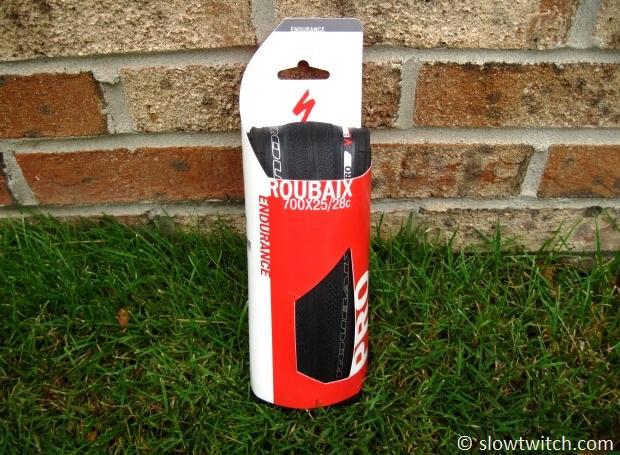
I’m a fan of larger tires for training, and the Roubaix Pro did not disappoint. Specialized sent the 25mm version to Tom for roller testing, and the 28mm version to me for real-world pothole bashing. The retail price is $55 per tire, and the quoted weight is 260 grams (25mm) to 300 grams (28mm).
When installed on the 17mm (internal width) Roval CLX60 wheels, my tires measured a whopping 28.4mm at 90psi when brand new. My titanium frame has generous tire clearance and had no trouble fitting it, and Specialized says that it fits their endurance-minded Roubaix frame.
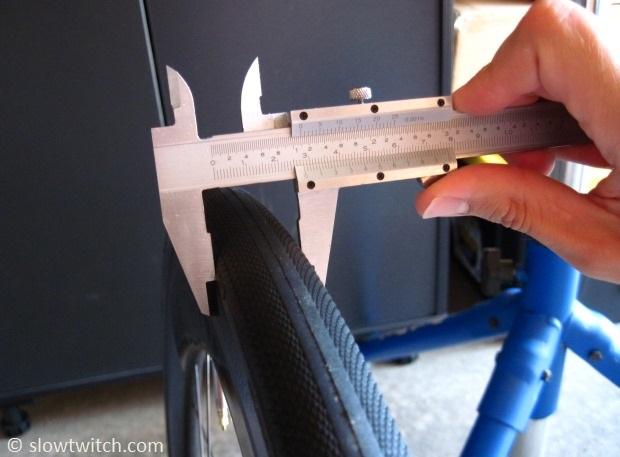
The Roubaix Pro was also a part of the compound updating at Specialized. It has 60a/70a dual compound that is similar to the Turbo Pro, which is softer and faster-rolling than the older compound. I originally received the old tire, and was very impressed with its overall quality. While subjective, the casing looked perfect, the diameter and fit were right, and it simply looked like it should cost much more than the $55 price tag.
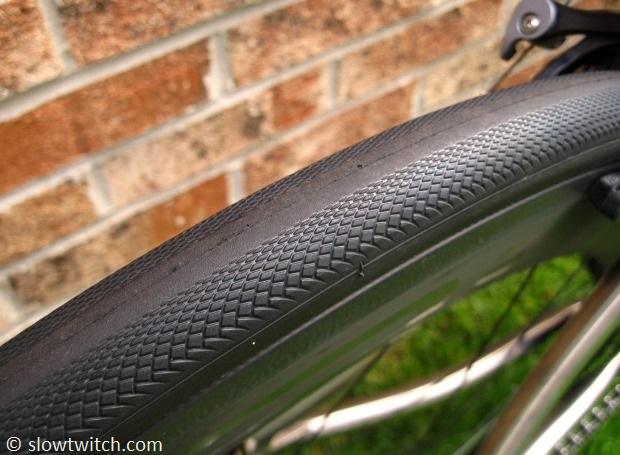
Specialized since sent the newer compound tire to me, but I have yet to ride it. This newer compound was also sent to Anhalt for testing, and can be seen in the results above.
Put simply, I was shocked to see that it rolls faster than the lighter weight Turbo Pro. The Roubaix Pro is officially the sleeper in the Specialied tire line. Looking for a tough tire choice for a questionable race course? This is your tire. The price is right, the quality is there, and the Crr is outstanding for a tire that is this durable. I ran my 28mm tires at about 75psi for most riding, and they were positively dreamy. This league of Crr is becoming very crowded with great tires.
Wrap Up
Specialized is competing against some big guns in the tire industry. My one gripe with them is the heavy focus on 700c sizes. What about the little wheels? A 650x24c S-Works Turbo and a 650×23/25c Roubaix Pro would, in my opinion, round out their line and make them a true competitor against giants like Vittoria and Continental in the retail setting.
My question to you is this: As a consumer, how much does tire branding matter? If you ride a Trek, Cervelo, or Cannondale, would you feel strange using a Specialized tire? Would you ride a Bontrager (Trek) tire on a Specialized bike?
Or – do the numbers trump all and you just want the fastest thing out there, regardless of brand name? We would love to hear your comments.




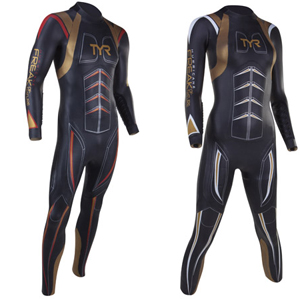
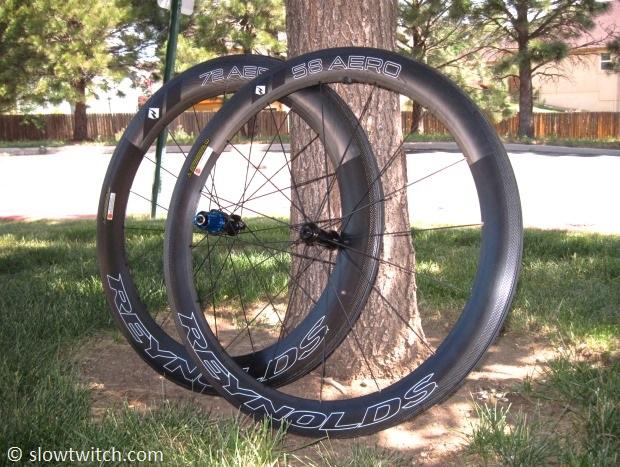

Start the discussion at forum.slowtwitch.com